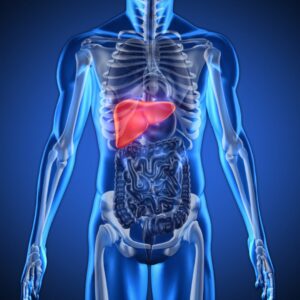Are you looking for natural ways to lower your heart rate and promote heart health? Look no further! In this article, we will share with you 10 powerful natural remedies that are both safe and effective. Whether you’re dealing with stress, anxiety, or simply want to maintain a healthy heart, these remedies are sure to help. Our brand understands the importance of a healthy heart.
That’s why we’ve curated this list of natural remedies that are backed by science and proven to work. From deep breathing exercises to herbal supplements, we’ve got you covered. Lowering your heart rate naturally not only reduces the risk of cardiovascular diseases but also promotes overall well-being. Take control of your heart health with these simple yet effective remedies. Incorporate them into your daily routine and feel the difference in your heart rate and overall vitality. Remember, your heart is the center of your body, and taking care of it should be a top priority. So, let’s dive into these 10 powerful natural remedies that will help you lower your heart rate and promote heart health.
Understanding Heart Rate and its Importance
Heart rate, simply put, is the number of times your heart beats per minute. It’s a fundamental measure of cardiovascular health and fitness. Here’s why it’s important:
- Indicator of Cardiovascular Health: Your heart rate can indicate the overall health of your cardiovascular system. A resting heart rate within a normal range (usually 60-100 beats per minute for adults) is typically a sign of good cardiovascular health. Consistently high or low heart rates can indicate underlying health issues that may need attention.
- Fitness Level: Heart rate is closely related to fitness level. Regular exercise tends to lower resting heart rate because a stronger heart can pump more blood with each beat, requiring fewer beats per minute to maintain blood flow. Tracking your heart rate during exercise can help gauge the intensity of your workout and ensure you’re getting the most out of it.
- Training Optimization: Athletes and fitness enthusiasts often use heart rate monitors to optimize their training. By staying within certain target heart rate zones during workouts, they can ensure they’re working hard enough to improve fitness without overexerting themselves.
- Stress and Recovery: Heart rate variability, which is the variation in time between each heartbeat, is increasingly recognized as an important indicator of overall health. Higher variability often indicates better fitness and resilience to stress, while lower variability can be a sign of stress or overtraining. Monitoring heart rate variability can help individuals understand their body’s response to stress and their level of recovery.
- Medical Monitoring: Doctors use heart rate as one of many indicators of health during check-ups and in diagnosing various conditions. Abnormal heart rates can be symptomatic of conditions such as arrhythmias, heart disease, or thyroid disorders.
- Risk Assessment: Elevated heart rate, particularly during physical activity or at rest, can be a risk factor for future cardiovascular problems. By keeping track of heart rate over time, individuals and healthcare providers can assess and manage cardiovascular risk.
In summary, understanding heart rate and its fluctuations can provide valuable insights into overall health, fitness level, and the effectiveness of exercise routines. It’s a simple yet powerful metric for monitoring and improving cardiovascular health.
Common causes of High Heart Rate
Several factors can cause a high heart rate, both temporarily and chronically. Here are some common ones:
- Physical Activity: During exercise or physical exertion, your heart rate naturally increases to meet the demand for oxygenated blood throughout your body. This is a normal and healthy response. However, prolonged or intense exercise can lead to persistently elevated heart rate, especially if you’re not adequately conditioned.
- Stress and Anxiety: Emotional stress, anxiety, or panic attacks can cause a temporary increase in heart rate. This is often part of the body’s “fight or flight” response, where the sympathetic nervous system is activated, leading to increased heart rate and other physiological changes.
- Caffeine and Stimulants: Consumption of caffeine, energy drinks, or other stimulants can temporarily raise heart rate due to their stimulating effects on the nervous system. In some individuals, this effect may be more pronounced and prolonged.
- Dehydration: When your body is dehydrated, your blood volume decreases, which can cause your heart to work harder to pump blood efficiently. This can lead to an increase in heart rate as your body tries to compensate for the decreased fluid volume.
- Medical Conditions: Certain medical conditions can cause chronically elevated heart rates. These may include:
- Arrhythmias: Irregular heart rhythms, such as atrial fibrillation, can lead to a consistently high heart rate.
- Hyperthyroidism: An overactive thyroid gland can cause symptoms such as rapid heart rate, sweating, and weight loss.
- Fever and Infection: Illnesses accompanied by fever or infection can lead to an elevated heart rate as the body works to fight off the infection.
- Anemia: A low red blood cell count can lead to decreased oxygen delivery to tissues, causing the heart to pump faster to compensate.
- Heart Disease: Conditions such as coronary artery disease or heart failure can result in an increased heart rate, especially during physical activity or times of stress.
- Medications: Certain medications, such as decongestants, bronchodilators, thyroid medications, and some antidepressants, can increase heart rate as a side effect.
It’s important to note that occasional episodes of high heart rate may not be cause for concern, especially if they occur in response to temporary factors like exercise or stress. However, persistent or recurrent high heart rate, especially at rest, warrants evaluation by a healthcare professional to determine the underlying cause and appropriate management.
Taking Control of your Heart Rate and Promoting Overall Heart Health
Taking control of your heart rate and promoting overall heart health is essential for your well-being. Here are some key steps you can take:
- Stay Active: Regular physical activity is crucial for maintaining a healthy heart rate and overall cardiovascular health. Aim for at least 150 minutes of moderate-intensity aerobic exercise or 75 minutes of vigorous-intensity exercise each week, along with muscle-strengthening activities on two or more days per week.
- Know Your Resting Heart Rate: Monitor your resting heart rate regularly to track changes over time. A lower resting heart rate often indicates better cardiovascular fitness. If you notice persistent elevations in resting heart rate, consult a healthcare professional.
- Manage Stress: Practice stress-reduction techniques such as deep breathing, meditation, yoga, or mindfulness to help keep your heart rate in check and promote relaxation. Finding healthy ways to cope with stress can benefit both your mental and cardiovascular health.
- Maintain a Healthy Weight: Excess weight can strain your heart and lead to an elevated heart rate. Aim for a healthy weight through a balanced diet and regular exercise. Consult a healthcare provider for personalized recommendations.
- Limit Caffeine and Stimulants: Be mindful of your intake of caffeine and other stimulants, as they can temporarily raise heart rate. Moderation is key, especially if you’re sensitive to their effects.
- Stay Hydrated: Drink an adequate amount of water throughout the day to prevent dehydration, which can increase heart rate and strain your cardiovascular system.
- Eat a Heart-Healthy Diet: Focus on a diet rich in fruits, vegetables, whole grains, lean proteins, and healthy fats. Limit saturated and trans fats, cholesterol, sodium, and added sugars, which can contribute to heart disease risk.
- Get Regular Check-Ups: Schedule regular check-ups with your healthcare provider to monitor your heart health, including blood pressure, cholesterol levels, and heart rate. Early detection and management of risk factors can help prevent heart disease.
- Quit Smoking: If you smoke, quitting is one of the best things you can do for your heart health. Smoking damages blood vessels, raises blood pressure, and increases heart rate, among other risks.
- Seek Medical Advice: If you have concerns about your heart rate or cardiovascular health, don’t hesitate to seek advice from a healthcare professional. They can provide personalized guidance and recommendations based on your individual health status and risk factors.
By taking proactive steps to control your heart rate and promote overall heart health, you can reduce your risk of heart disease and enjoy a higher quality of life.







